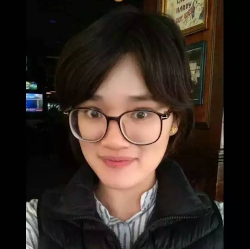Sally Chengji Xing gave a recent invited talk at Nankai University, Tianjin, about Paul Monroe and China. She gave a workshop presentation at Cornell University, about the China Foundation story from 1913 to 1949. She will present her work at Wuhan University in April, and later in Shanghai Normal University perhaps in May. In June, she will present a paper based on her second chapter to the SHAFR annual conference.
Sally Chengji Xing

Ph.D. Candidate, U.S. History, Columbia University
“Pacific Crossings”: Paul Monroe, John Dewey and the Architecture of Modern Chinese Scientific Research and Education, 1913-1949
My dissertation examines how the American intellectuals influenced the establishment of modern Chinese scientific education and research, and were in turn, influenced by their encounters with China, through the China Foundation for the Promotion of Education and Culture. The China Foundation, hand in hand with the Rockefeller Foundation, was a central force in developing modern science in China. Based on the second remission of the American returned Boxer Indemnity Funds to China, the China Foundation was committed to the development of scientific knowledge and to the application of such knowledge to the conditions in China through the promotion of technical training, scientific research, experimentation, and training in science teaching. With the multi-archival findings in China, Taiwan and the United States, my research analyzes the Sino-American intellectual exchange network that laid the foundation of the China Foundation, and explores how China Foundation’s blueprints were disrupted by war and revolution. Adding to the existing literature on China and the Rockefeller Foundation, it aspires to shift our perspective of US history, that focuses overwhelmingly on American interconnections with Europe, to the interconnected networks of “Pacific Crossings”.